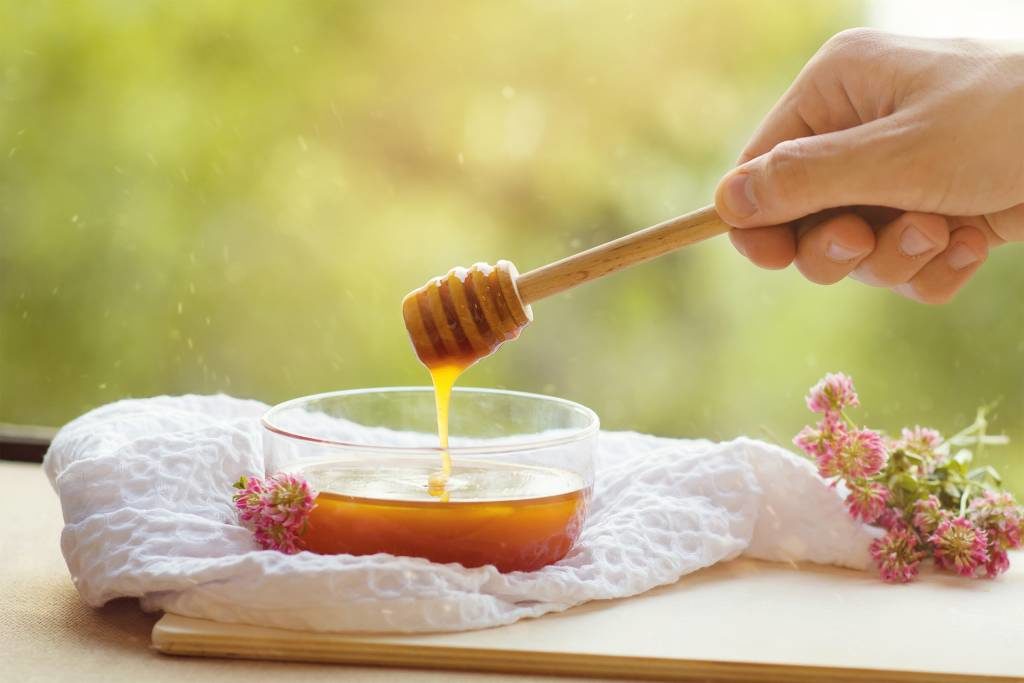For wellness-minded consumers, there’s no need to reach for health-sapping processed ingredients when whipping up extra mmm. Wholesome Sweeteners has seen an uptick in demand for honey, agave, and zero-calorie sweetener since the beginning of COVID-19. Kruesi says the company is still seeing higher growth in natural and organic options as consumers seek out trusted brands they can feel good about giving to their families.
These are priorities that apply to the packaged goodies consumers are purchasing as well. As Christian Quie, President, Mavericks Snacks, recently told WholeFoods, parents are looking for sweets and treats that are low/reduced/no sugar. Many brands, he says, are making sugar reductions through a variety of methods and ingredients. Mavericks, a manufacturer of kids cookies and crackers, created cookie snacks segment by using chicory root fiber, and whole grains in their cracker snacks (4).
That healthy focus is especially true for those concerned about underlying conditions, and brands are looking to deliver on the need. “The past months have shown that people with diabetes or a badly controlled blood sugar level suffer more from COVID-19,” says Kyle Krause, Product Manager, Functional Fiber and Carbohydrates, North America BENEO Inc. “Therefore, the interest in reducing and replacing sugar content for an improved blood sugar management, especially in a natural way, continues to be of high interest to food and beverage manufacturers.”
Get the Sugar Out
“Sugar, though familiar and plant-sourced, has clearly fallen out of favor,” says Pam Stauffer, Global Marketing Programs Manager, Cargill. “In our proprietary research, consumers consistently rate sugar as the ingredient they are most likely to avoid.” More evidence comes from the International Food Information Council (IFIC), which found that 74% of respondents are trying to limit or avoid sugar in their diet—especially added sugars (5).What’s New and NextTapioca syrup is one ingredient that can be used in confections and more as a label-friendly replacement for corn syrup sweeteners, according to Scott Helstad, Technical Service Representative at Cargill. “In creating these syrups, our research and ingredient processing teams worked to develop products with carbohydrate profiles and DE [Dextrose Equivalent] levels that mirror our existing corn syrups, including a reduced-sugar option. The resulting tapioca syrups perform nearly identically to their corn syrup equivalents, allowing one-to-one replacement with little to no additional formulation work.”
Stevia is another standard pick. It’s a staple in Cargill’s product inventory, says Andrew Ohmes, the company’s Global Director High Intensity Sweeteners. “When Cargill first envisioned offering stevia as a commercial sweetener back in the 2000s, no stevia supply chain of scale existed. We set out to build a world-class socially and environmentally responsible supply chain from the outset.” Ohmes says Cargill’s sustainability program in the stevia industry spans 137 control criteria across 13 different categories, includes a detailed agricultural standard designed to minimize the environmental impact of production practices, and focus on ethical requirements that cover worker safety and welfare. “We train the farmers who partner with us on agricultural best practices, designed to enhance the soil, and conserve and improve water quality.” And in the process: “We’ve drastically improved the taste of newer stevia products, making formulation much easier.”
An option that is sometimes blended with stevia, but also can stand alone: monk fruit. “We are seeing a strong trend towards using monk fruit as a single sweetener rather than blending with other sweeteners like stevia,” says David Thorrold, General Manager Sales and Marketing at Monk Fruit Corp. He credits the shift to consumers spending more on eating in, which he says is increasing demand for products with premium ingredients like monk fruit that support a healthy nutritional profile.
Consumers are also looking beyond flavor and choosing options that add function. For manufacturers working to meet the demand, BENEO has two low-glycemic fibrous sugar replacements that the company calls “new generation sugars.” Slowly released and derived from sugar beet, BENEO’s Palatinose provides balanced and sustained energy and can be applied to chewy candy, chewing gum, or chocolate, says Krause. And Isomalt is used as a sugar replacer in hard candies and has a sweetening profile close to sucrose.
Andrea Mayer, Vice President of Global Sales at Andean Star Corporation, agrees that consumers are on the market for natural, plant-based, low-calorie, low-glycemic sweeteners that also provide additional nutritional or health benefits. A top-selling sweetener for Andean Star Corp. is Yacon Syrup, a 100% natural, organic certified, vegan, raw, low- calorie, low-glycemic, and gluten-free prebiotic sweetener that a good fit for dieters, diabetics, and people who are interested in living a healthy lifestyle.
Agave also remains a popular pick. One of Wholesome Sweeteners’ top-selling products is Organic Blue Agave, a liquid sweetener sourced from farmers in Mexico. “Organic Blue Agave can be used for many things, including sweetening beverages and cocktails, in smoothies, on top of oatmeal, on toast, and in many more ways,” says Kruesi. “Agave has a low glycemic index so it is a great option for folks seeking less of a ‘sugar spike.’ It also has a mild, versatile flavor profile, and it is sweeter than sugar—so a little goes a long way.”
Adventurous shoppers might want to tickle their tastebuds with a little something different, like coconut sugar. Or for even more of a twist, Chef Nik Fields, CEO, Chic Chef Co, says the company offers innovative sweetener options like her flavored vinegars, and floral flavored simple syrups. Fields points out that consumers tend to think of brown sugar or maple syrup when they think of sweeteners, but, “Vinegar, especially balsamic vinegar, is naturally sweet, and when it cooks, it gets even sweeter. Vinegar can lower cholesterol and blood sugar, is a natural fat and has natural sugar.
In addition to the flavor and the function, many consumers have another focus: Free-from. Suzanne’s Specialties offers vegan, non-GMO, and gluten-free sweeteners. The company has a full line of natural sweeteners that retain plant identity and micronutrients, including organic brown rice syrup, organic wildflower honey, organic agave syrup, and organic clarified rice syrup.
4 Ways to Sweeten Up Sales
- Educate. Display a list with benefits of each sweetener, suggests Andrea Mayer of Andean Star Corporation.
- Offer Options. Place the sweeteners next to a versatile group of items—Apple sauce, jackfruit, citrus, melon are popular products that consumers know have healthy nutrition facts, says Chef Nik Fields of Chic Chef Co. Mitchell Kruesi of Wholesome Sweeteners adds, “We recommend including a wide breadth of organic sweetening products, including traditional sweeteners used primarily for baking occasions, like cane sugar, brown sugar, and powdered sugar, unrefined sugar options like coconut palm sugar, liquid sweeteners including honey and agave, as well as low and no calorie options, like stevia and allulose.”
- Tell a Story: Kruesi suggests that retailers use end cap displays and shippers to showcase different sweeteners during different seasonal times of year, and provide consumers premium options that they can easily find while shopping the store.
- Bundle Up. Bundle alternative sweeteners with other high index basket baking items such as flour, chocolate chips, etc.
Something for retailers to keep in mind: Higher-value sweeteners that don’t require compromise on taste or labeling aren’t going anywhere, says Thorrold. “Brands and marketers are seeing that the relatively small extra cost of higher-value sweeteners is not a barrier in the current environment where consumers are redirecting their food spending away from eating out towards better-quality and healthier packaged foods for in-home consumption.”
The category will likely see a mix of traditional and innovation. Ohmes says consumers will turn to staples like honey, and also look to low and no-calorie sweetener options like stevia and allulose, a monosaccharide that is another trending zero-cal sweetener.
The trajectory is pretty clear, Ohmes adds: “The key forces driving consumer demand for natural sweeteners—sugar reduction and clean label—show no sign of abating. At the same time, we can’t lose sight of the importance of taste. Consumers want reduced-sugar foods and beverages made with familiar ingredients—but not at the expense of great taste. Taste is—and will remain—the single biggest driver of purchase intent.” WF










